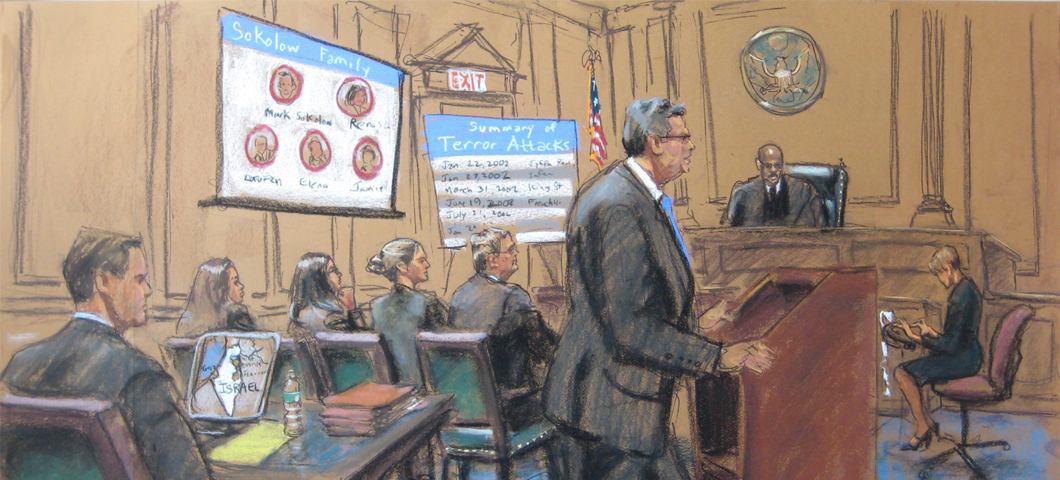Why Trial Presentations Are Crucial for Convincing a Court
Trial discussions play a pivotal function in the lawful procedure, acting as an important device for persuading jurors. By successfully streamlining intricate legal concepts and integrating aesthetic help, lawyers can create an engaging narrative that resonates on both intellectual and psychological degrees. This critical approach not only enhances jurors' understanding but likewise promotes a much deeper link to the instance handy. As we discover the numerous components that comprise a reliable test discussion, it comes to be evident that the art of persuasion extends far beyond mere arguments. What factors truly elevate these presentations to their crucial condition?
Significance of Visual Help
Aesthetic aids play an essential duty in test presentations, functioning as powerful tools to enhance jurors' understanding of complex info. They can transform intricate legal concepts and valid information right into conveniently digestible formats, therefore boosting jurors' retention and understanding. In a courtroom setup, where focus spans might subside, visual help such as charts, graphs, and timelines can properly catch and maintain passion.
Additionally, visual help assist in highlighting crucial points, making abstract concepts much more concrete. An infographic can succinctly sum up a series of occasions or relationships, enabling jurors to visualize the evidence offered. This visual depiction can bridge voids in understanding that might occur from spoken explanations alone.
Furthermore, properly designed aesthetic aids offer trustworthiness to the case. They demonstrate the lawyer's preparedness and expertise, reflecting a thoughtful technique to advocacy. By offering a clear aesthetic context, lawyers can better suggest their placement and persuade jurors to align with their perspective.
Engaging Narration Strategies
A compelling narrative is necessary for effectively engaging a court throughout test presentations. Storytelling methods can change intricate legal arguments into relatable and unforgettable experiences for jurors. By creating a clear and systematic narrative arc, attorneys can guide jurors with the truths, stressing vital factors that sustain their instance.
Using personalities, problem, and resolution within the narrative allows jurors to determine with the individuals included, producing a feeling of compassion and understanding. Trial Presentations. This human component can be specifically effective in developing the context of the instance, making the details more digestible
Incorporating vivid descriptions and relevant anecdotes can even more enhance the narrative, suggesting that resonates with jurors on a much deeper degree. Lawyers must concentrate on providing the truths in a manner that highlights the stakes involved, fostering a feeling of necessity and relevance.
In addition, pacing plays a critical duty in narration; varying the tempo can keep jurors' focus and highlight vital moments in the case. Overall, involving narration techniques act as an essential device for attorneys seeking to encourage juries and influence their decision-making procedure.
Psychological Connection With Jurors

To achieve this link, lawyers can use vibrant storytelling, engaging visuals, and genuine statement that highlight the human element of the case. Concentrating on the real-life effects of the test can help jurors see past the legal lingo and value the psychological stakes involved. Such strategies urge jurors to understand with the celebrations involved, making them more probable to think about the emotional these details weight of the proof provided.
Furthermore, constructing depend on with genuineness and credibility can also boost this emotional bond (Trial Presentations). When jurors really feel an individual connection to the instance, they are much more likely to engage deeply with today debates, ultimately making their considerations much more educated and impactful. Therefore, fostering a psychological connection is not simply advantageous; it is essential for efficient persuasion in the courtroom
Simplifying Complicated Information

Making use of aesthetic aids, such as graphes and representations, can considerably enhance understanding by giving a click resources concrete depiction of abstract concepts. This approach permits jurors to imagine partnerships and impacts, facilitating much better comprehension of the instance's nuances. Damaging down information right into smaller, absorbable segments assists maintain jurors' emphasis and prevents cognitive overload.
Utilizing uncomplicated language is similarly crucial. Legal lingo or excessively technical terminology can estrange jurors and obscure the core message. By making use of common language, lawyers create a bridge to get in touch with jurors, ensuring that the compound of the debate is both relatable and memorable.
Eventually, simplifying complicated details not only aids jurors in recognizing the case however also fosters a feeling of self-confidence in their ability to make a notified choice, which is important for accomplishing a desirable outcome.

Enhancing Retention and Remember
While jurors might grasp complex info throughout test discussions, boosting their retention and recall is equally important for guaranteeing that crucial anchor debates reverberate long after the proceedings. Effective trial presentations utilize different methods created to strengthen the jurors' memory of critical realities and debates.
Aesthetic help, such as graphes, charts, and video clips, can dramatically bolster retention by engaging numerous detects, therefore developing more powerful cognitive links. Paired with clear, succinct narratives, these tools help reinforce the bottom lines, making them more memorable. Furthermore, rep of critical details throughout the discussion makes sure that crucial disagreements are not only understood but additionally implanted in the jurors' minds.
An additional efficient strategy is making use of narration, which fosters psychological interaction and aids in recall. By mounting truths within a compelling story, attorneys can create a long-term perception that resonates past the court.
Inevitably, improving retention and recall is vital for persuading jurors, as it encourages them to carry the weight of the instance's disagreement right into deliberations. A well-crafted presentation not just educates but likewise guarantees that jurors keep in mind the necessary aspects required to get to a simply choice.
Conclusion
In conclusion, trial discussions play an essential role in convincing courts by incorporating aesthetic aids, involving storytelling, and psychological connections. These elements simplify intricate legal concepts, making them available and relatable. Reliable discussions boost jurors' retention and recall of important arguments, eventually affecting their considerations. By fostering a deeper understanding of the situation, test presentations serve as a crucial device in the pursuit of justice within the legal system.